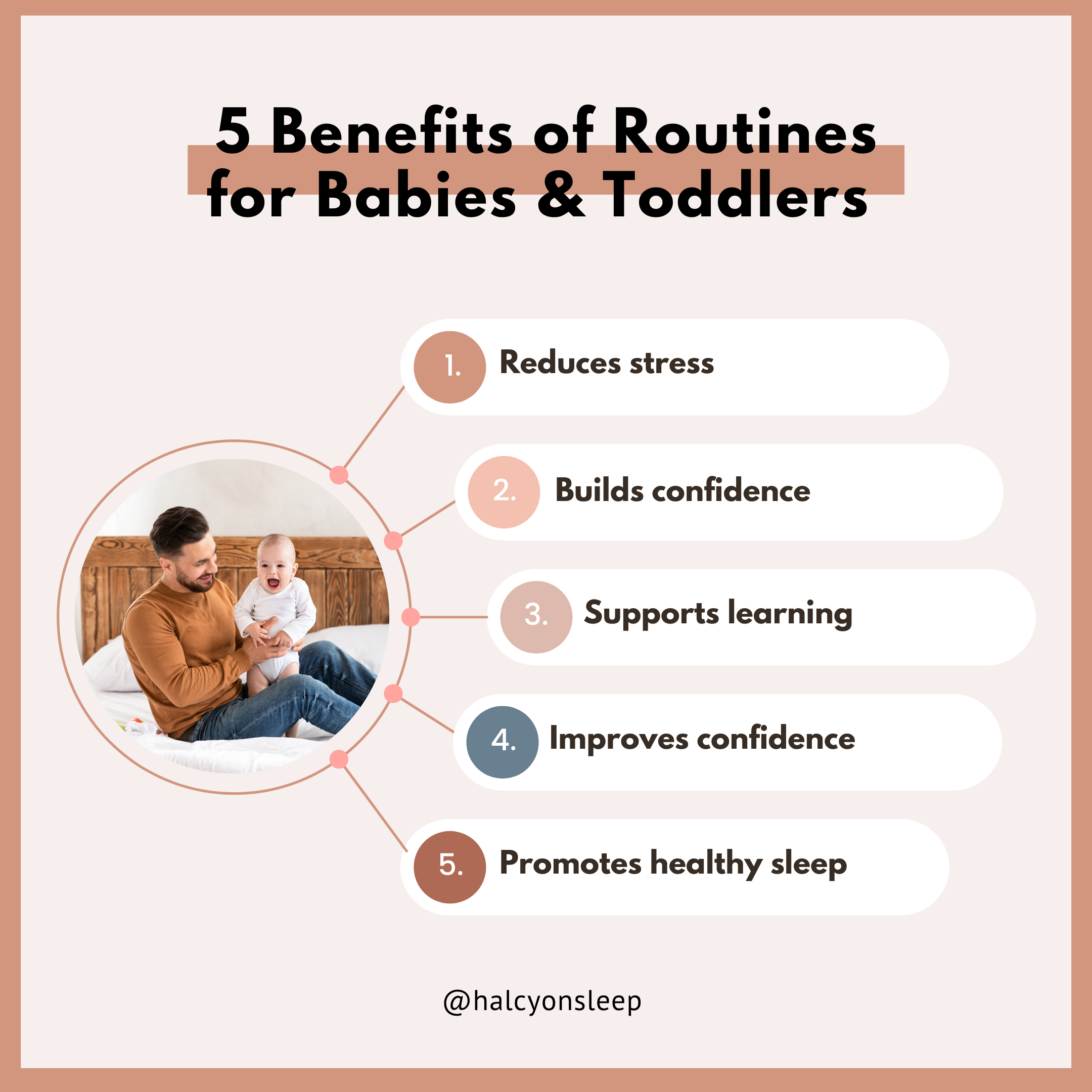The benefits of having a routine.
Your habits create your mood, and your mood is a filter through which you experience your life.
Whether you have a newborn or a 3 year old, all babies and children thrive off routine. In fact most adults do too - we are creatures of habit and having predictable routines can greatly improve your overall health & wellness. Many people who do not have any type of routine have been found to suffer from increased stress, poor sleep, poor eating habits, poor physical health and are less productive.
For babies and children, one of the key benefits of a routine is that it creates a feeling of safety and helps them feel confident and secure within their environment. The way your child experiences the world, influences their ability to learn effectively and build their inner confidence. They rely on us as their primary caregivers to provide them with boundaries, consistency & routines in order to promote this sense of security, safety and connection.
Some more benefits to having a routine for your child:
Becoming a parent can feel chaotic, disorganised & sometimes overwhelming. Routines help us ease into parenthood & can be beneficial for your relationship & mental health.
Routines are essential for learning. Babies grow so quickly & before you know it, they are completely aware of the world around them. Repetition & predictable patterns help them learn what to expect sets a great foundation for healthy sleep habits in the future.
Building routines with your children helps them to feel safe. They know what to expect and it provides them with clear boundaries, expectations and consistency.
Routines can give you confidence as a new parent. If your child has a predictable feeding and sleeping schedule it can help you feel confident that their needs are being met & help you find the root cause if your baby is upset or unsettled more quickly.
For newborns, routines can also help with day and night confusion. When your baby is born, they cannot tell the difference between day & night because they do not have a circadian rhythm. Having some sort of daily routine will help them learn & teach their body clocks the difference between day & night.
As they grow, having regular daily routines such as wake up time, nap time, dinner time and bedtime promotes healthy sleep and positive associations with sleep long-term.
If you would like to know more about routines or recommended daily schedules for your little one, you can also still enrol in my All About Naps course for FREE by signing up to my newsletter at the bottom of this page.
You might also like my post Introducing a comforter to your baby.



